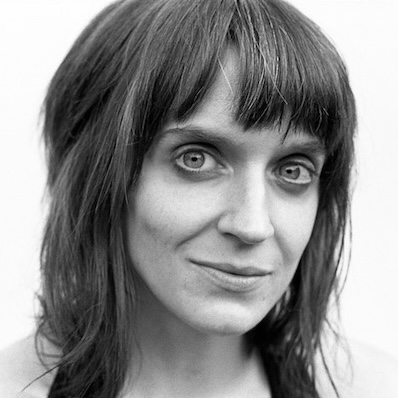Virtual Seminars are engaging and interactive learning opportunities for small groups of mayors and their senior staff. Each one-hour seminar features a deep-dive presentation on a single timely topic, followed by a moderated group discussion among the attendees.
Virtual Seminar: Arts, Urban Design, and Mental Health
This seminar, recorded February 27, 2024, explored how arts, culture, and urban design strategies can help address loneliness and mental health challenges. The arts, design, and the built environment are core aspects of planning for health, health equity, and belonging, and when we tap into these resources, we open more pathways for well-being and resilience.
This seminar revisits two popular presentations originally shared at the United States Conference of Mayors 92nd Winter Meeting in January 2024.
Watch the presentations (42:48):
Key Takeaways
Health is not just the absence of disease, but also the presence of wellbeing. Arts and culture and the built environment can contribute to this wellbeing, helping cities to address loneliness and mental health challenges in a holistic way.
- Seek out the resources already present in your community, such as arts and culture organizations and leaders.
- A framework for using the arts to support mental health:
- Direct health benefits: Consider the scientifically-proven ways the arts directly improve mental health.
- Awareness and education: Tap into artists’ creative thinking around storytelling and visualization during city efforts.
- Sociopolitical change: Bring artists to the table when trying to create meaningful change in your community.
- Improved data: Use creative and qualitative methods for seeking to understand constituents’ needs.
- Healthy design should be personal, evidence-based, and integrated into the design process from the very beginning. Evaluate spaces post-design to ensure they meet health goals.
- Meaningful community engagement is critical to ensuring that projects meet the needs of the people they serve, identifying specific challenges faced by different users.
Resources
- Arts on Prescription: A Field Guide for US Communities https://www.tashagolden.com/fieldguide
- Creating Health Communities through Cross-Sector Collaboration https://arts.ufl.edu/site/assets/files/174533/uf_chc_whitepaper_2019.pdf
- Public Repository to Engage Community and Enhance Design Equity (PRECEDE) https://precede.perkinswill.com
- Healthy Affordable Housing: The Toolkit http://tinyurl.com/PWhealthyaffordablehousing
- Healthy Schools by Design https://healthyk12.perkinswill.com
Speakers

Erika Eitland, PhD
Co-Director, Human Experience Lab
Perkins and Will
Dr. Erika Eitland is a passionate researcher dedicated to understanding how the built environment influences human health. She co-directs the Human Experience (Hx) Lab at Perkins&Will, leading research on the population-health impacts of its K–12 schools, affordable housing, and urban frameworks. She is a principal investigator on the development of the Public Repository to Engage Community & Enhance Design Equity (PRECEDE) tool, funded by a Transform Research Grant from the American Society of Interior Designers.
She has presented her research with the World Bank, U.S. Green Building Council, U.S. Environmental Protection Agency and Health Resources and Services Administration as well as with local state policymakers, architects, non-profits, and public health professionals. She has served as a committee member for the U.S. EPA Children’s Health Protection Advisory Committee since March 2023.
She received her doctorate from Harvard T.H. Chan School of Public Health in Environmental Health where she was the Program Leader for the Schools for Health Program and the lead author of ‘Schools for Health: Foundations for Student Success’ report that examined more than 250 scientific articles on the association between building quality and student health and performance. She also holds a Masters of Public Health in Climate and Health from Columbia University.

Tasha Golden, PhD
Director of Research, International Arts + Mind Lab
Johns Hopkins Medicine
Tasha Golden, PhD is a singer/songwriter turned public health scientist, who helps leaders and teams around the world think
more creatively: breaking out of the status quo to achieve greater impact.
In addition to speaking and consulting internationally, she is Director of Research at the International Arts + Mind Lab at Johns Hopkins Medicine, and adjunct faculty in the University of Florida’s Center for Arts in Medicine.
Golden’s work spans art, research, health, and human- centered design. She’s published extensively on the well-being impacts of creativity and the arts, serves as an advisor on health initiatives around the globe, and founded Project Uncaged: a trauma-informed creative writing program for incarcerated girls that amplifies their voices in justice reform. She is also the lead author of “Arts on Prescription: A Field Guide for US Communities”.
Golden’s out-of-the-box thinking is informed by her background as an artist and entrepreneur. As singer- songwriter for the critically acclaimed band Ellery, she toured full-time for many years, with songs in film and TV (ABC, SHOWTIME, FOX, NETFLIX, etc). When major depression and burnout derailed her music career, she had to reimagine her identity and future. This experience shaped her focus on wellbeing, and informed her strategies for helping leaders think beyond what they’ve always done–asking bold questions they haven’t considered. As both an artist and scientist, Golden is passionate about breaking out of silos and norms. Combining research and practice, she helps leaders think bigger about what they do, where it can go, and how it matters.
Golden reaches a range of audiences: from academics and health practitioners to businesses, arts orgs, youth workers, agencies, educators, foundations, etc. She also consults for teams all over the world—applying creativity, research, and action frameworks to further their goals.

